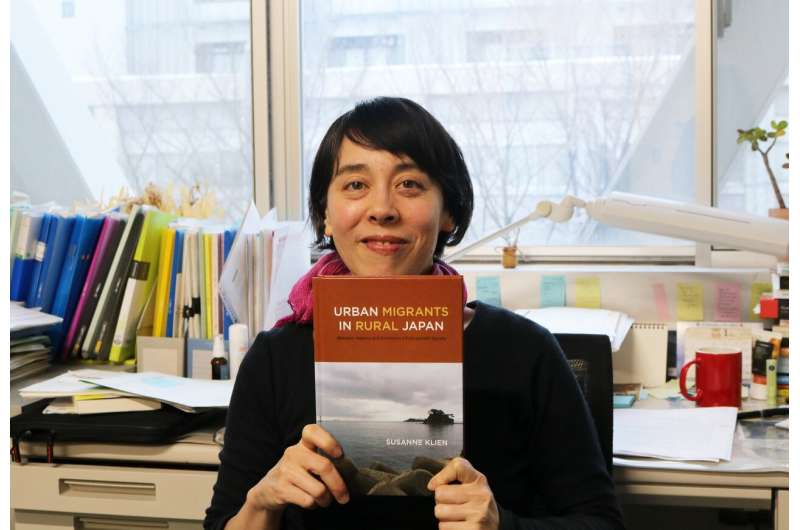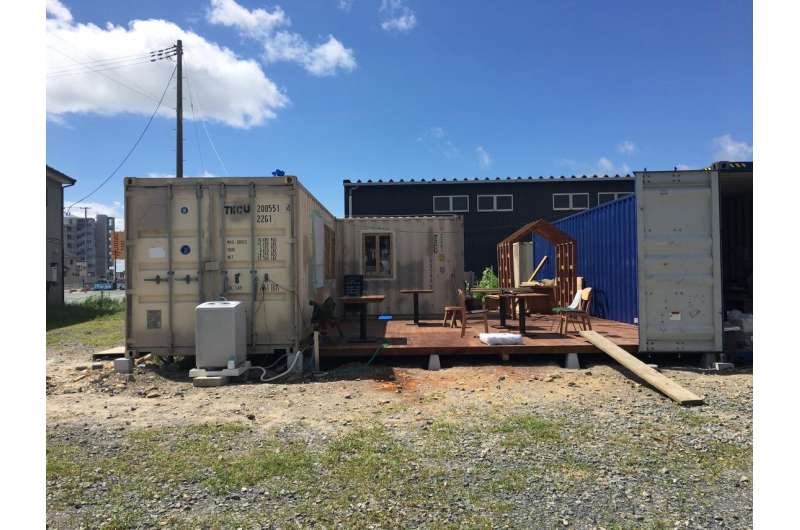Back to the future: A case of Japanese rural migration

Susanne Klien is an associate professor at Hokkaido University's Modern Japanese Studies Program (MJSP). Having explored intangible cultural heritage across Japan, Klien has been expanding her research in area studies and anthropology on rural Japan. During her previous work for a research institute in Tokyo, she observed a unique migration pattern that has been taking place in Japan: more young people are relocating from big cities to rural areas, for example to the Tohoku area, the northeastern portion of Japan's main island of Honshu.
"I first took notice of this trend during my research on the disaster volunteers of the 2011 Tohoku earthquake and tsunami. There was a significant number of volunteers from urban areas who permanently settled down in the Tohoku area and started their own business," explained Klien.
According to her, rural areas in general have been associated with rustic, bleak images. In the aging society of Japan, rural areas have a high number of senior citizens. This entails more problems: vacant houses, tradition discontinuity, etc. Hence, the general expectation is that younger people make attempts to escape from the countryside and seek bigger opportunities in urban and industrial regions.
However, Klien's research, which received generous support from Japan Society for the Promotion of Science (JSPS), shows that the ongoing trend indicates a shift towards the opposite. She observes that there has been an increase of young people leaving big cities such as Tokyo and Osaka. Driven out by the stressful urban life, the subjects of her interviews claimed to aim starting life anew in rural areas and becoming entrepreneurs. Klien observed that this novel pattern of entrepreneurship is even undeterred by the COVID-19 global pandemic.

"The general economic landscape has made Japanese people reluctant to start a business, as it has been considered too risky. But the ongoing pandemic makes people want to relocate to areas with fewer residents. Moreover, as a way to revitalize the area, the local government provides financial support for potential entrepreneurs that entice more urbanites," Klien elaborated.
On this issue, Klien has been working on a series of research projects which have been turned into a book titled "Urban Migrants in Rural Japan: Between Agency and Anomie in a Post-growth Society." Published in 2020 by SUNY Press, the book provides an ethnographic analysis of rurality and emerging forms of work and lifestyle in Japanese post-growth society. One chapter of the book focuses on the perspective of female rural migrants; Klien described that they face considerable challenges.
"During my interviews, I discovered that some rural areas are still dominated by conservative values which tend to undervalue the female role in society, therefore limiting the women's potential in their business creation. Nonetheless, many of my female interviewees consider this as an inevitable challenge they need to overcome," said Klien.
Klien mentioned one outstanding example of Aya, a woman in her late 30s who was working hard to establish an experiential restaurant in Miyagi Prefecture. This woman had been one of the volunteers of the 2011 Tohoku earthquake and tsunami. As an attempt to revive the area, she envisaged a participatory restaurant that allows guests to be actively engaged in their dish creation. It also created job opportunities for single mothers in the local area.
Provided by Hokkaido University


















